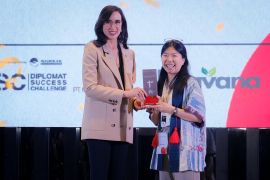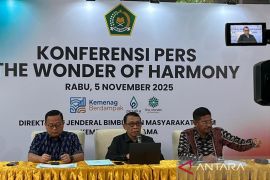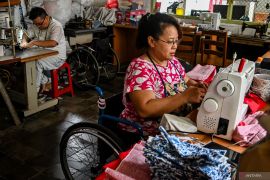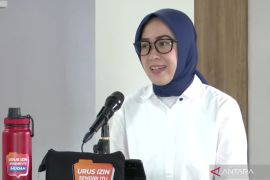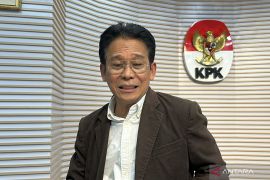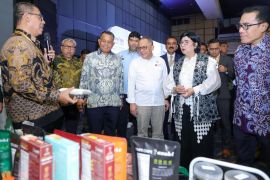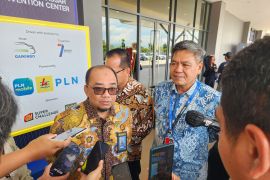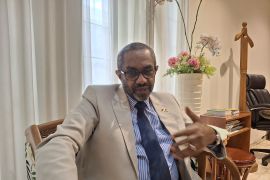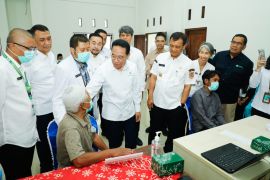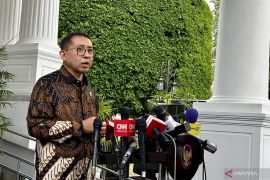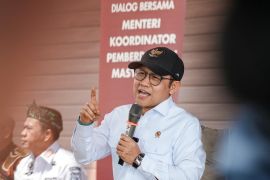Like many other countries, Indonesia can neither get rid of the impact of this fast-growing digital technology on the lives of its people and industries.
The presence of this digital technology has, indeed, disrupted the lives of lots of Indonesians and businesses in the country.
However, instead of opposing the changes, many people and industries in the country attempt to get familiar with the changes to enable them to survive the era of disruption.
Nowadays, instead of paying the toll charges in cash, drivers are obliged to use electronic money at any time for paying toll fees at the exit gates.
Over the past year, the central government has imposed the policy on the use of electronic money for paying toll charges on all highways across Indonesia.
The presence of online travel agents and online shops has also been accepted. More and more Indonesians look more comfortable with their services.
These information technology-related changes do not just make the people`s lives look more efficient. They also threaten certain people`s jobs.
The introduction of electronic tolling in the country has significantly reduced the number of toll collectors because their jobs have been replaced by digital machines.
The industries that fail to conduct a self-disruption may become what Indonesia`s top management expert Renald Kasali calls "zombie companies" (2018:16).
Renald Kasali has elaborated the disruption phenomenon and how Indonesia`s publicly listed coal miner, Adaro Energy Tbk, survives the era of disruption in his new book.
The title of the book, launched in July 2018, is "Self Disruption: How Does Adaro Exit From the Traps of the Past and Disrupt Itself to become a Healthier Company?"
Amid the real challenges of the era of disruption, the quality of Indonesia`s human resources varies. As the world`s fourth most populous country, it has yet to be able to put itself into the list of the world`s most literate nations.
John W.Miller`s study (CCSU, 2016) shows that the top 10 most literate nations are Finland, Norway, Iceland, Denmark, Sweden, Switzerland, the United States of America, Germany, Latvia, and the Netherlands.
The study of Miller, noted researcher of the Central Connecticut State University, further revealed that Indonesia ranked 60th out of 61 countries. Its rank was just better than that of Botswana but it was far left behind by Singapore (36) and Malaysia (53).
His study synthesized "literacy achievement tests (Progress in International Reading Literacy Study and Programme for International Student Assessment) and literate behavior characteristics (population, newspapers, libraries, years of schooling)" (2016).
Miller argued that a nation`s literate behaviors contribute to its success and failure in dealing with the demands of the world`s knowledge-based economics.
This hurdle has actually been well responded by the central government by campaigning the importance of the 4th Industrial Revolution (4-IR).
Minister for Research, Technology and Higher Education Mohamad Nasir has repeatedly launched an awareness campaign on the 4-RI at universities across the archipelago.
Many companies in the country also take part in empowering the people through their corporate social responsibility (CSR) program.
Last July, Adaro Energy Tbk, for example, had even announced its CSR program with a total worth of Rp1.1 trillion (US$1 = Rp14,820) by focusing on community empowerment to help Indonesians survive the era of disruption.
The CSR program was launched by Adaro Energy`s President Director Garibaldi "Boy" Thohir, along with representatives of four foundations run by founders of the company, at a ceremony marking the 10th anniversary of the coal miner`s initial public offering.
Finance Minister Sri Mulyani Indrawati witnessed the launching of the "Adaro`s Torch of Knowledge" CSR program at the ceremony attended by business people, influential journalists, and the University of Indonesia`s top management expert Renald Kasali.
"We remain committed to empower community members through education, because we do believe that education is a determining factor to enable Indonesia to become a developed nation," Thohir remarked.
Education plays a very strategic role in building a strong and well-developed nation, because a great success in cementing the basic foundations of good education, including character education, will enable the country to have excellent human resources.
"Having good human resources is a valuable asset for building our nation. We do it for a brighter Indonesia," he noted, adding that the presence of well-educated and skilled Indonesians is important to make them survive the era of disruption.
In connection with its CSR programs, Adaro Energy`s official website revealed that it would provide scholarships and mobile libraries.
For Najwa Shihab, popular television journalist and host of the weekly talk show Mata Najwa (Najwa`s Eyes), the availability of excellent libraries is very important because they will help the people become lifelong learners.
"The easiest way to become a lifelong learner is reading books," said the ambassador of the Republic of Indonesia`s National Library with a mission to promote literacy campaigns for improving reading habits and interests among Indonesians.
"If we talk about literacy, it means that we are talking about endeavors to create a smart nation in the future," Najwa Shihab
(T.R013/A/S012)
(T.R013/A/R013/S012) 09-09-2018 22:37:30
Reporter: Rahmad Nasution
Editor: Suharto
Copyright © ANTARA 2018

